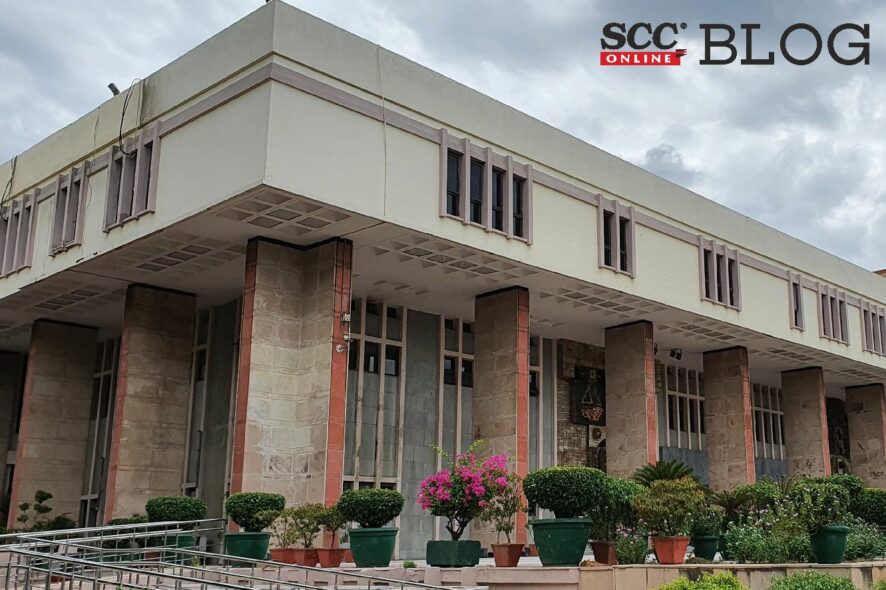Delhi High Court: While expressing the object of PMLA Act Chandra Dhari Singh, J., expressed that, offence of money laundering is threefold including the stages of placement, whereby the criminals place the proceeds of crime to the general and genuine financial system, layering, whereby such proceeds of crime are spread into various transactions within the financial system and finally, integration, where the criminals avail the benefits of crime as untainted money.
A criminal revision petition was filed by the petitioner under Section 397 of the Penal Code, 1860 read with Section 401 of the Code of Criminal Procedure, 1973 and Section 47 of the Prevention of Money Laundering Act, 2002 (PMLA) seeking setting aside of the order passed by the Special Judge, Patiala House Courts whereby all the accused persons were discharged on the ground that no prima facie case was made out against them.
Background
In the present matter, criminal proceedings under PMLA were initiated against the respondents by the petitioner on the basis of independent intelligence gathered regarding money laundering activities. Therefore, an FIR under Sections 21,25,29 and 61 of the Narcotics Drugs and Psychotropic Substance Act, 1985 and Sections 420, 468, 471, 120B of the Penal Code, 1860 were registered.
Petitioner’s case was that the respondents were found to be involved in an international syndicate of laundering the money generated out of the drug trafficking in Australia and other countries.
While the private Respondents 1 to 3 are based in India, their counterparts, namely, Gulshan Kumar, Mandeep Singh, Sanjeev Kumar Saini and Ravinder Pal Singh were based in Australia and together they had been carrying out cross border criminal activities and their counterparts in Australia had already been apprehended.
Analysis, Law and Decision
High Court firstly stated that the offence of money laundering under the PMLA is layered and multi-fold and includes the stages preceding and succeeding the offence of laundering money as well.
Further, the Bench stated that the offence of money laundering, is not to be appreciated in isolation but is to be read with complementary provisions.
“…the essential ingredients for the offence of Section 3 of the PMLA become, first, the proceeds of crime, second, proceeds of crime arising out of the offences specified in the Schedule of the Act and third, the factum of knowledge while commission of the offence of money laundering.”
High Court expressed that, since no scheduled offence was made out against the respondents, this Court found that an investigation and proceedings into the PMLA could not have been established against the respondents at the first instance.
Section 397 CrPC unequivocally states that the High Court or Sessions Courts which is exercising its revisional jurisdiction shall apprise itself solely of the question of correctness, legality and propriety of the order of the Subordinate Court.
“…the provision of the Cr.P.C. suggests that the Court shall limit itself to the findings, sentence or order passed by the subordinate Court, against which the Revisionist is seeking relief before the Courts concerned and shall not go beyond the analysis and observations made by the subordinate court.”
Additional Sessions Judge is under the challenge before this Court in its revisional jurisdiction.
This Court stated that in its revisional jurisdiction it would not proceed into the enquiry of the records, documents and other evidence in consideration before the Trial Court, but shall constrain itself to the findings of the lower Court in the impugned order and to the question whether there is any patent illegality, error apparent on record or incorrectness.
Bench remarked that the extent of exercise of discretion by the Court was limited to the prima facie satisfaction of the Court and if the Court does not find reasonable grounds of suspicion against the accused, it may discharge him of the offence alleged against him.
Additional Sessions Judge did not find any evidence brought on record to show that the accused persons were involved in the commission of the offences alleged against them.
This Court found force in the submission that since no offences were made out against the respondents. Petitioner could not establish the allegations against the respondents and as such the material produced was not sufficient to find the guilt against them.
High Court found no illegality or impropriety in the lower court’s decision, hence the petition was dismissed. [Directorate of Enforcement v. Gagandeep Singh, 2022 SCC OnLine Del 514, decided on 17-2-2022]
Advocates before the Court:
For the Petitioner:
Anurag Ahluwalia, CGSC with Danish Faraz Khan, Advocates
For the Respondents:
Vikram Chaudhari, Senior Advocate with Rishi Sehgal and Ria Khanna, Advocates







